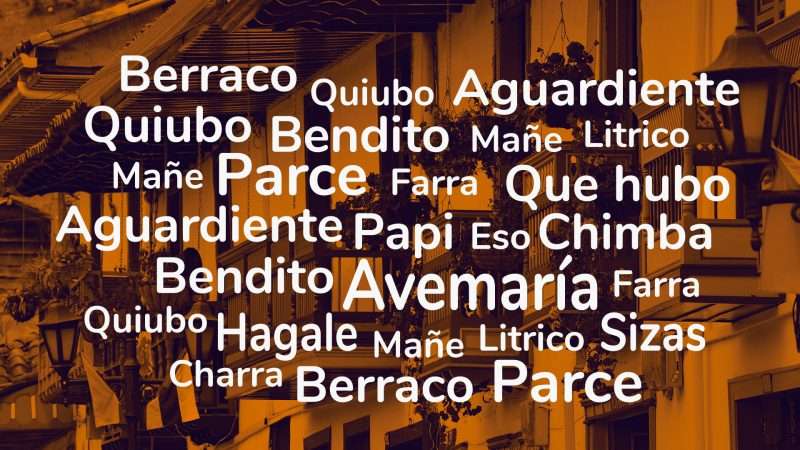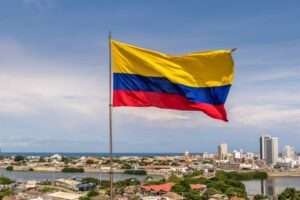How do they speak in Medellin?
You probably traveled to Medellín thinking that it would be easy to survive with the Spanish you already know. But what you were not expecting is that some of the words used here mean something completely from what you have learned. This is the reason why VICO brings you a special edition with a small (but really useful) paisa dictionaryto help you understand some of the words and expressions used in this culture.

Amañar:
It means to be comfortable and happy in a situation or place. So a really typical example would be when you get in into a taxi and start talking with the driver and he asks: “¿Está amañado en Medellín?

Bacano:
A fact, object or situation outstanding or pleasant. For example, when you are invited to your first paisa party and you go by yourself without your friends and the host is glad you are there: “¡Qué bacano que viniste!”

Berraco:
You can refer like this to a person who is outstanding, practical, brave or also someone who is very upset, angry. For instance, you are going to see the Silleteros parade on la Feria de las Flores and you hear a paisa proudly saying: “¡Estos silleteros sí son muy berracos!” or it can on the other hand be used when someone is mad at you “Mi hermana está berraca porque no la llamé”

Charro:
Something funny, that makes you laugh. Example, you go to a cinema and watch a movie that is not from Adam Sandler: “Tan charra esa película”

Chévere:
Defines something nice, beautiful, special. It can be people, objects or actions. Example: When your group of friends discovers that you are not boring or embittered: “¡Qué chévere salir con vos!”

Chimba:
Its real meaning makes an allusion to the vagina but it is usually used to refer to something extremely good. For example, as Juanes said: ¡Medellín es una chimba!

Farra:
Used to refer to a party. For example, during a typical Friday after class, so when the weekend finally starts, there will always be someone asking: “¿Dónde es la farra esta noche?”

Gonorrea:

Being the name of a disease it is used to classify something as bad, unpleasant, it can be used as an insult. For example, you are trying to be funny but the comedy is not your thing: “¡Qué gonorrea de chiste!”
Ingresa a nuestra plataforma VICO y encuentra tu próximo alojamiento en Colombia.
Guaro:
Used to refer to the Aguardiente Antioqueño, which is one the most famous Liqueurs in Colombia. For example, at any time, anywhere after the first bottle: “¿Compramos más guaro o qué?!

Marica:
Anotherway to refer to someone as a “parcero” or a friend. The word was originally an insult to gay people but the word remained on the daily vocabulary. For instance, you don’t remember the name of a guy you met in a party:“Vení, ¿cómo es que se llama este marica?”

Mañé:

Used to express how tasteless or vulgar is a person: For example, when a woman is dressed in a exaggerated way and out of tune with the occasion, you usually say: ¡Qué vieja tan mañé!
Oílo:

It denotes disbelief or doubt, so a way of questioning what another person says. For example, after a night of “guaros”, you say the best-known sentence in the world: -“No vuelvo a tomar” and they are then going to answer:-¡Ja, oílo!”
Parce:
Possibly the most used word by the citizens of Medellín, it refers to someone. It can be a friend but also someone you don’t know. For example, at any time, any person, any place: “Parce, ¿qué horas tenés?”

Parche:
Place of reunion or the action to hang out with friends. For example, when you have nothing to do and you and your friends are really bored, you usually end up hanging out in someone’s house: “Parchemos en mi casa”

Pola:
Beer. This term became famous in 1911 by a label made in honor of the independence heroine Policarpa Salavarrieta. For example, imagine it is midday, the sun is really hot, so you suggest “¿Vamos al Provee por unas polas?”

Sizas:
Used to say “yes”. For instance: just use this word instead of “yes”: -“¿Tienes clase en la tarde?” -Sizas, parce”

We hope you found this dictionary useful and that your are now finally able to understand some paisa words.






